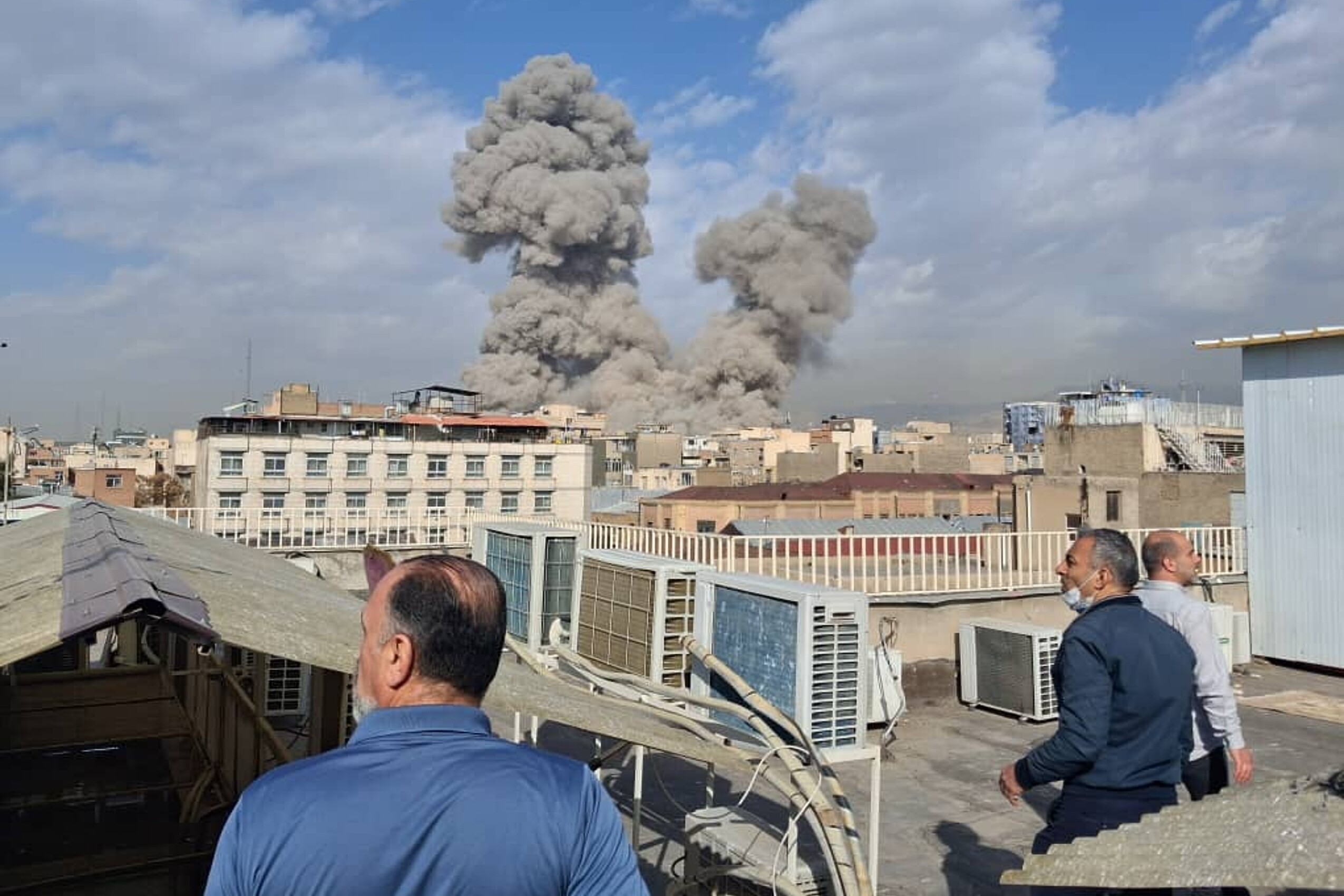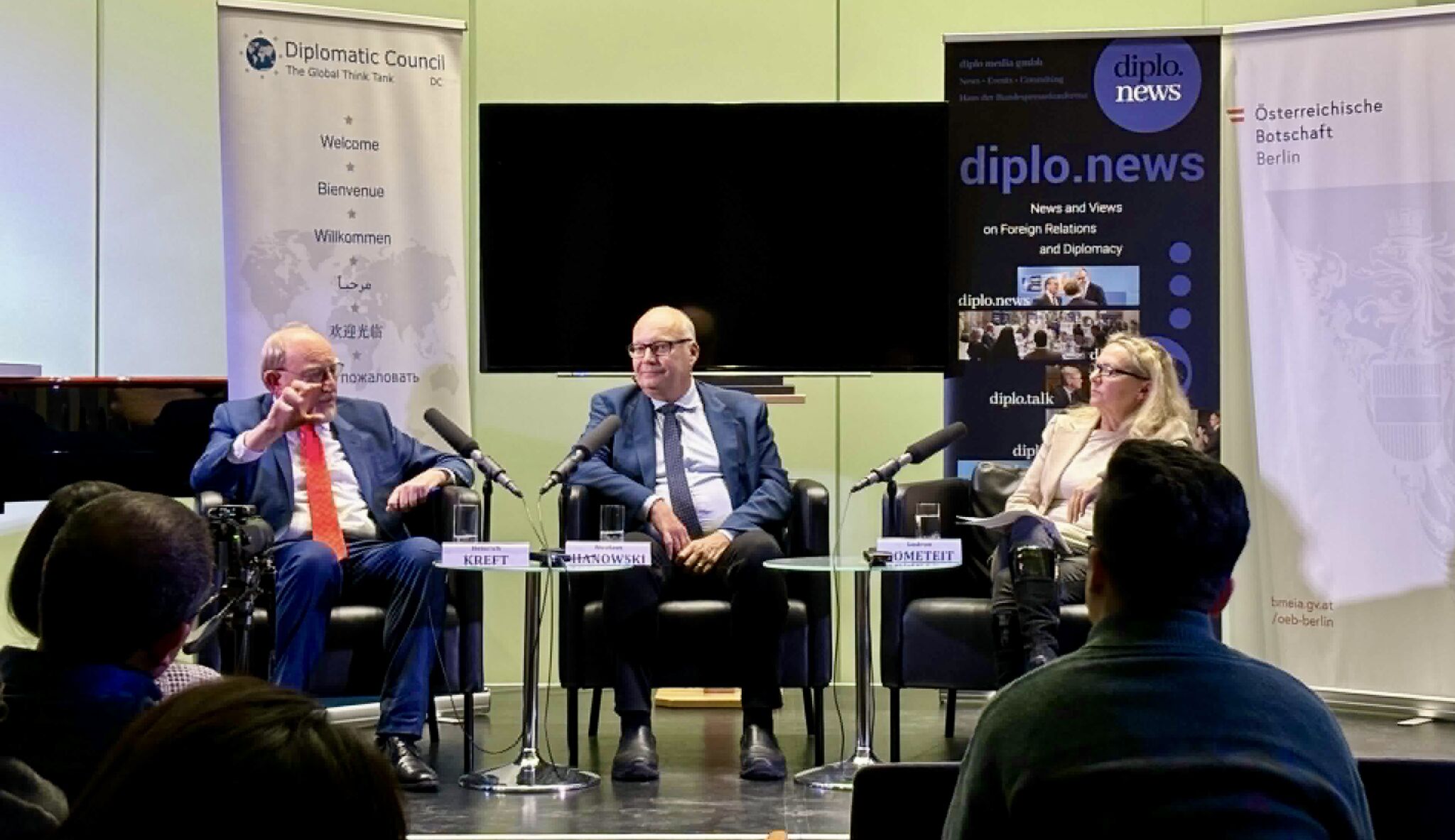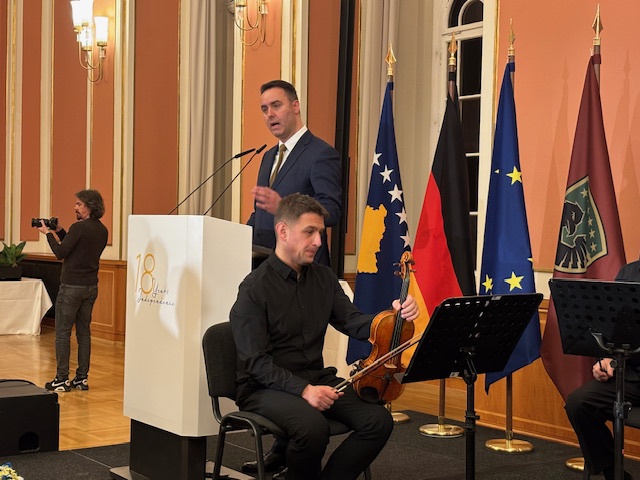diplo.news
„Diplomats never get angry...
By Volker Stanzel, Berlin

..., they take notes”,’ Talleyrand famously said, and so the following remarks have the status of notes in Talleyrand's sense.
In Chinese newspapers, a term for the American President Donald Trump is currently doing the rounds: ‘weapon of mass destruction.’ The consequences of his policies, no matter in which area, are considered to be so damaging that previously reliable parameters no longer seem reliable. They would be jeopardised as otherwise only by a weapon of mass destruction. This is an exaggeration, to be sure, but it puts a finger in a large, painful wound: the uncanny and ominously threatening unpredictability of the American president. Added to this is his determination to create facts - no matter in which area, no matter how, and no matter, in the end, even without thinking about the consequences of his spontaneous harassment of the real world. Diplomacy is one of the many areas where Donald Trump is having such a destructive effect. And doubly so. So these are possibly introductory thoughts on the diplomacy of the future - taking into account the new dangers created by the American president.
Firstly. Donald Trump is taking his country's diplomacy out of the hands of the professionals. Rubio, the Secretary of State, seems to be making policy as arbitrarily as the President wants him to, regardless of any advice from his own organisation. The best example is Rubio's behaviour in the Ukraine crisis. No initiatives come from him, not even enlightening explanations. He limits himself, and his entire ministry, to praising Trump's statements. However, this also means that Rubio is not utilising the entire large apparatus of diplomacy as a professional should: to search for solutions to challenging problems. On the contrary, he is following the president's instructions to dry up the Foreign Ministry in terms of personnel. The reason for this may be that large numbers of people who think along Trump's political lines will then be recruited. That remains to be seen. Undoubtedly, fresh air can also be good for personnel structures in any bureaucracy. But here diplomacy is being made dependent on the whims of an unpredictable personality who is ultimately playing with the lives of countless uninvolved people in distant parts of the world, with risks that are by no means unknown. It is also a behaviour that no one dares to oppose. There is no need to go into the causes of this development in American diplomacy, as the consequences alone are dramatic enough.
America's strength lies in the alliance system it has developed and built since the end of the Second World War, largely based on shared values. The USA played the central and ultimately, despite all the problems, welcome leadership role; - people liked to talk a little rancorously about the USA as a policeman, but ultimately they breathed a sigh of relief when it set about solving problems (which resulted in their own dramas, it must be admitted: Chile, Iran, Vietnam, Iraq, Afghanistan ....) If alliances become unreliable, then the alliance lacks momentum. Threats to deprive alliance partners - such as Canada - of their independence, or at least to occupy parts of their country - as in Greenland, as in Panama - lead to a rapid increase in insecurity within the alliance. And even more so outside the alliance, because there, too, people had become accustomed to the sheriff, for better or for worse. But now, when the Europeans hopefully put the foundations of effective diplomacy in place among themselves, it will be global, error-prone diplomacy without the (still) strongest country in the world.
Secondly. Diplomacy without the US is only a symptom of the real drama. Behind it all is the destruction of the international order driven by the new American administration. This order, created after the Second World War by the five founding members of the UN, is by no means flawless, but it does embody the consensus of all states in the world to solve their problems together within the framework of the institutions created for this purpose and in accordance with the legal norms designed for this purpose. It is multilateralism that is now in blatant danger. It is tempting to talk about multipolarity instead. But you have to know what you mean by that. It is perfectly understandable if states that have gained new strength - thanks to that very international system! - want to utilise their strength. They have more influence and more assertiveness.
Reliable waymarks are no longer valid
A world of many such ‘poles’, of many such assertive states, is a world that we know well. From the history books. It is the world in which might becomes right, and in which the smaller states invoke legal principles in vain, while larger states declare their behaviour to be the new ‘law’. It is a world in which, as Robert Kagan has said, the jungle is returning. We ourselves are returning to the world of pre-modern diplomatic civilisation. Of course, we already observed this trend before Donald Trump. But Donald Trump is driving itforward through American behaviour: the de-legalisation of the world. It is almost an experiment to see whether modern diplomacy can cope better with this than that of past millennia, where war was ultimately always the ‘solution’ to problems.
In the process, we have recently come across a curiosity that also makes things somewhat fascinating for us observers. The world power that has always fought the previous system more vehemently, namely China, with the complaint that the international order only serves the hegemonic ambitions of the USA in particular, this China is suddenly speaking out - not by chance, but as a reaction to Trump's behaviour - this country, right up to its supreme leader, is suddenly talking incessantly about the benefits of multilateralism, which must now be defended. It speaks of the international order that must be preserved. An interesting development. Well, when someone turns from Saul to Paul, then in cases like the one discussed here it is not at all unreasonable to support them. Diplomacy in the world of the jungle.
Initially, as said before, this is very understandable behaviour. However, many states will soon realise that what was previously considered to be a reliable waymark is no longer valid. For Europe it is still easy, fortunately. And simple, even if we look beyond the European Union and consider countries such as the UK or Norway. The European states can keep the world of multilateralism alive among themselves, with good reason, because it brings them the well-known advantages. At the same time, they can look outside Europe for allies - who knows whether China might not even be an option under the new conditions! But others, who suddenly see what the ugly side of the jungle world looks like: it's not just orchids and butterflies! - will possibly go through processes similar to those that now seem to be revealing themselves in China. Modern diplomacy must therefore defend what diplomacy is all about. But under the new circumstances, it must become a protective power. A protective power for what we have traditionally understood as diplomacy.

Volker Stanzel headed the German embassies in Tokyo from 2009 to 2013 and in Beijing from 2004 to 2007, and was also Political Director of the Federal Foreign Office. Today, he works as a guest researcher at the German Institute for International and Security Affairs in Berlin. In 2019, he published the book "Die neue Wirklichkeit der Außenpolitik - Diplomatie im 21. Jahrhundert" (The New Reality of Foreign Policy - Diplomacy in the 21st Century) (Photo: SWP)




